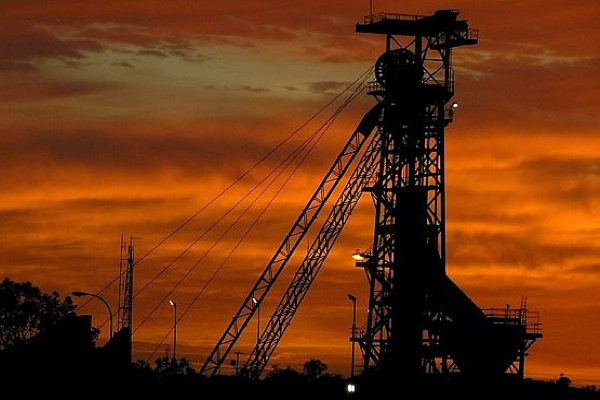Industry warns sovereign risk in Australia is rising

BHP (ASX: BHP) has long been opposed to the Australian government’s Same Job, Same Pay industrial relations legislation, which the company said required it to pay inexperienced labor hire workers the same as a worker with decades of experience, impacting costs and productivity.
In its 2024 financial year results released Tuesday, BHP said “regulatory changes underway in Australia will add to our labor costs and reduce the international competitiveness of the Australian economy”.
Speaking to reporters following the release, BHP CEO Mike Henry said it was too early to quantify the cost to the business.
“We’ve always been strong advocates for tying wage increases to productivity increases, and of course, we’re supportive of that,” he said.
“Our concerns around some of the recent changes are that they flow straight through the cost with no commensurate positive impact on productivity – in fact, they can pull things in the other direction.”
The new legislation has driven attempts to re-unionize Western Australia’s large mining workforce, which, if successful, Henry warned could impact potential future expansions in iron ore.
Industry already reeling
Last week, a decision by Australian environment minister Tania Plibersek to veto the tailings dam for Regis Resources’ (ASX: RRL) proposed A$1 billion ($680 million) McPhillamys gold development in New South Wales made the project unviable. The company took a $130 million hit.
The project, which sits on freehold farmland, had received state approval from NSW’s Independent Planning Commission (IPC) and federal approval under the Environment Protection and Biodiversity Conservation (EPBC) Act 1999 in March 2023.
One of the only outstanding approvals for the project was the Section 10 application under the Aboriginal and Torres Strait Islander Heritage Protection Act 1984, which Regis had been progressing for the past four years.
The Orange Local Aboriginal Land Council (OLALC), the key local Aboriginal representative group, made a submission during the IPC process that any risks to cultural heritage could be mitigated.
“Regis had every confidence that from a regulatory point of view, McPhillamys was an approved project with no significant showstoppers from a government perspective,” Regis managing director Jim Beyer told analysts and media.
“So Minister Plibersek’s declaration was a huge shock to us, and not a decision that we felt was in keeping with past precedent, particularly given the already extensive investigation into Aboriginal cultural heritage issues.”
The declaration was also condemned by industry groups.
Hot topic
The decision sent shockwaves through the Australian mining industry and has made headlines in mainstream press for more than a week.
Australian reporting season is in full swing and the issue has repeatedly been raised, including with BHP Tuesday.
“When companies like BHP and any large business make decisions, you’re looking for the best risk returns and profile, and uncertainty generally means more risk, and so any uncertainty in permitting or other policies will become a drag on investment,” Henry said.
“Specifically in respect of that decision, I would say BHP has been strong supporters of policies related to cultural heritage protection, and that certainly is something that we take very seriously as a business, but on the broader point, the investment community does need as much certainty as possible, because that will ultimately improve investment attractiveness for Australia, alongside competitiveness.”
Northern Star Resources (ASX: NST) managing director Stuart Tonkin said Australia had a strong track record of being a stable place to invest.
“Every slow change like this just takes away some of that shine, and the light of capital has choice, so if Australia is not sitting up there as a great jurisdiction to invest in, the capital goes to different countries,” he said on a conference call last week.
“It comes back to the Fraser Institute index. Australia has a very high ranking. It is important to try to understand why that is and how we preserve that to attract investment.”
Even companies with development projects outside of Australia, like Patriot Battery Metals, are heeding concerns from investors.
While speaking to investors in Australia last week following the release of the preliminary economic assessment for its Shaakichiuwaanaan lithium project in Quebec, the company was asked if a similar thing could happen in Canada.
While CEO Ken Brinsden said he was confident that it couldn’t occur, he was amazed the issue had repeatedly come up.
“It’s hard to believe we’re having this conversation in Australia,” he said.
Industry braces for green reforms
The Australian mining sector has already warned about possible negative implications of federal environmental law reforms.
The ‘Nature Positive’ reforms include the establishment of a national environmental protection agency (EPA), which would be in addition to the existing EPAs in each state and territory.
Legislation was introduced into federal Parliament in May, with the government promising the EPA would be a “tough cop on the beat” with the ability to issue ‘stop-work’ orders to prevent serious environmental damage and proactively audit businesses.
Industry groups have warned the move would lead to duplication of regulation, adding to the cost and timeline of getting new projects approved.
“The environmental policy is just an absolute joke in Australia,” Minerals Council of Australia CEO Tania Constable told a conference in May.
“I’m failing to see what a national EPA is going to add in terms of making sure that we get a better environmental outcome when we’ve got state EPAs out there.”
Whitehaven Coal managing director Paul Flynn was quoted by The Australian last week as saying the changes were “front of mind” for the company.
He described the Regis decision as just one of “a whole range of policy issues which are causing concerns for the industry”.
More News
{{ commodity.name }}
{{ post.title }}
{{ post.date }}




Comments